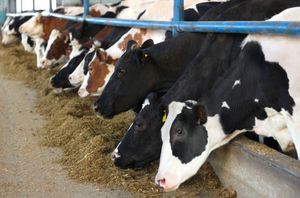
Whether you run a small organic farm or a sprawling commercial agricultural enterprise, you need insurance coverage. The risks of operating a farm range from environmental disasters to hard-to-predict market changes. If you’re a beginner farmer or expanding your business into new areas, here’s what you need to know.
What Farmers Should Know About Insurance
What Is Crop Insurance?
Since the food supply is of national importance, the government has joined forces with approved private providers to offer protection for your commodities. The term is something of a misnomer; it’s often used as an umbrella term that applies not only to crops, but also to livestock, forage seeding, beekeeping operations, pastures, clam and oyster fishing operations, and rangeland. The most common plan is multiple peril crop insurance (MPCI) coverage. This will generally shelter you against financial losses due to plant diseases and weather events, such as droughts and freezes. Some plans may also cover you if your yield drops below a certain threshold or prices decline due to market conditions. Total coverage levels and availability vary from crop to crop and county to county.
What Livestock Coverage Do I Need?
 Livestock protection typically covers the market value of your animals, minus expenses of feed. Depending on the details of your plan, losses due to natural disasters, wildlife, or disease can be addressed. This can include incidents that occur during transport. Individual coverage for uniquely valuable animals may be available. There are also plans that will protect you against dips in price or total revenue received from dairy operations. An agent can help you navigate the various factors you’ll need to consider when choosing a coverage type.
Livestock protection typically covers the market value of your animals, minus expenses of feed. Depending on the details of your plan, losses due to natural disasters, wildlife, or disease can be addressed. This can include incidents that occur during transport. Individual coverage for uniquely valuable animals may be available. There are also plans that will protect you against dips in price or total revenue received from dairy operations. An agent can help you navigate the various factors you’ll need to consider when choosing a coverage type.
What About Equipment & Staff?
From your production gear like tractors and combines to electrical distribution systems, you rely on machinery to run your farm. Some plans provide not only for natural disasters, but also damage caused by power surges, mechanical failure, and even operator error. Some providers may also offer protections for borrowed or rented items. Depending on the size of your operation, you may be required to carry agricultural workers’ compensation to cover medical care, wage replacement, and benefits for seasonal and permanent employees who operate your appliances.
For help choosing a plan to protect your holdings, turn to Chanler Agency in Livingston County, NY. Since 1973, the professionals at this family-owned and -operated outfit has partnered with many top providers to ensure you have a comprehensive selection of insurance plans and types. They also offer financial services that can help your business thrive. Contact them at (585) 243-5520 for their Geneseo office or (585) 346-3118 for their Livonia location. Visit their website to browse the carriers they represent.
About the Business
Have a question? Ask the experts!
Send your question

